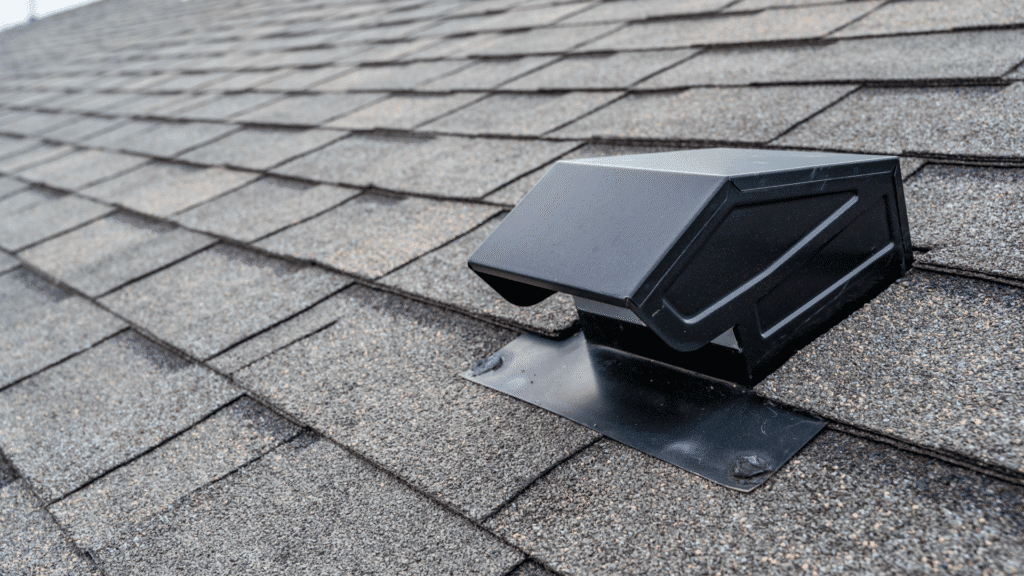A healthy roofing system does more than just keep out rain, it regulates temperature, prevents moisture buildup, and protects your home’s structure. One of the most overlooked yet essential aspects of roofing is roof ventilation. Without proper ventilation, even the best roofing materials can deteriorate faster, leading to higher energy bills and expensive repairs.
At Fix Roofing LLC, we understand how important ventilation is for homes in Florida’s hot, humid climate. Let’s explore why proper airflow under your roof matters, how to spot ventilation problems, and what our team does to ensure your roof remains durable, efficient, and comfortable year-round.
Why Roof Ventilation Matters
Roof ventilation allows air to circulate through the attic and roofing system, balancing temperatures between the inside and outside of your home. When designed properly, it helps push out hot, moist air while drawing in fresh air from the outside.
In Florida, where humidity and heat are constant challenges, the benefits of roof ventilation in Florida are especially important. Proper ventilation helps:
- Extend roof lifespan: Excess heat and trapped moisture can damage shingles and underlayment over time. Ventilation reduces wear and tear.
- Prevent mold and rot: Moist air trapped in the attic can lead to wood rot, mold growth, and structural issues.
- Improve energy efficiency: A cooler attic means your air conditioner doesn’t have to work as hard, saving you money on energy bills.
- Enhance comfort: Balanced temperatures keep your living spaces cooler in summer and reduce moisture buildup in winter.
Simply put, a well-ventilated roof helps your home breathe, protecting both the structure and your comfort.
Common Signs of Poor Roof Ventilation
Homeowners often don’t realize there’s a problem with their roof ventilation until damage appears. Here are some signs of poor roof ventilation to watch for:
- Hot attic spaces: If your attic feels excessively warm even at night, it may not be ventilating properly.
- High energy bills: An unventilated roof traps heat, making your HVAC system run longer and harder.
- Peeling paint or warped wood: Excess humidity can damage surfaces inside your home.
- Mold or mildew odors: Persistent musty smells often signal moisture buildup in the attic.
- Ice dams in winter: In colder regions, trapped warm air melts roof snow unevenly, leading to ice dams.
Ignoring these warning signs can cause significant damage over time. If you notice any of them, it’s wise to schedule a roof inspection to evaluate your ventilation system.
How Improper Ventilation Leads to Roof Damage
When hot, humid air is trapped inside your attic, it causes moisture buildup, leading to wood rot and shingle deterioration. Over time, this can compromise your roof’s structure and even impact your home’s insulation. Proper ventilation also plays a key role in roof moisture prevention, protecting against long-term decay and costly repairs.
In addition, poor ventilation affects your home’s indoor air quality. The trapped heat can create uncomfortable living conditions and even contribute to mold growth in walls or ceilings.
How Fix Roofing LLC Ensures Proper Airflow
At Fix Roofing LLC, we take a comprehensive approach to every roofing project, ensuring your ventilation system is designed for your home’s unique layout and Florida’s challenging climate. Our experts assess your roof’s intake and exhaust balance to guarantee continuous airflow that protects both your home and your energy efficiency.
Here’s how our process works:
- Thorough Inspection: Our experienced team evaluates your attic, soffits, ridge vents, and roof structure to identify airflow issues.
- Customized Ventilation Design: We recommend the best ventilation solution based on your roof type, whether ridge vents, gable vents, or attic fans.
- Professional Installation: Using high-quality materials and precise installation methods, we ensure your system works efficiently for years to come.
- Ongoing Maintenance: Our roofing experts provide maintenance and inspections to keep your roof in top shape.
Our goal is to ensure every customer enjoys a durable, energy-efficient, and comfortable home, because proper ventilation is not just a luxury; it’s a necessity.
The Fix Roofing Difference
Fix Roofing LLC is a trusted name in Tampa and surrounding areas, known for delivering roofing excellence with integrity and care. We serve both residential and commercial properties across Hillsborough, Pinellas, and Pasco counties.
From installations to repairs, we use top-quality materials from Owens Corning and GAF to ensure long-lasting performance. Whether you’re dealing with roof leaks, poor ventilation, or want to upgrade your entire system, our licensed and insured professionals are here to help.
Experience the Fix Roofing difference today and schedule your free, no-obligation estimate. Let our experts keep your home safe, efficient, and comfortable all year long.
Frequently Asked Questions
Q: Why is roof ventilation especially important in Florida?
A: Florida’s climate is hot and humid year-round. Without proper ventilation, heat and moisture can build up in your attic, leading to roof damage, higher energy bills, and mold growth.
Q: How can I tell if my attic has good ventilation?
A: A properly ventilated attic stays close to the outside temperature, even on hot days. If it feels stuffy or unusually warm, your ventilation system may need improvement.
Q: Can poor ventilation cause roof leaks?
A: Indirectly, yes. Moisture buildup from poor ventilation can cause condensation, leading to wood rot or mold that weakens your roofing structure and causes leaks over time.
Q: How often should roof ventilation be inspected?
A: It’s best to have your ventilation checked during your regular roof inspections, typically once or twice a year, especially before Florida’s storm season.
Q: Does roof ventilation help lower energy costs?
A: Absolutely. Proper airflow reduces heat buildup, allowing your HVAC system to operate more efficiently, which can lower your energy bills.

